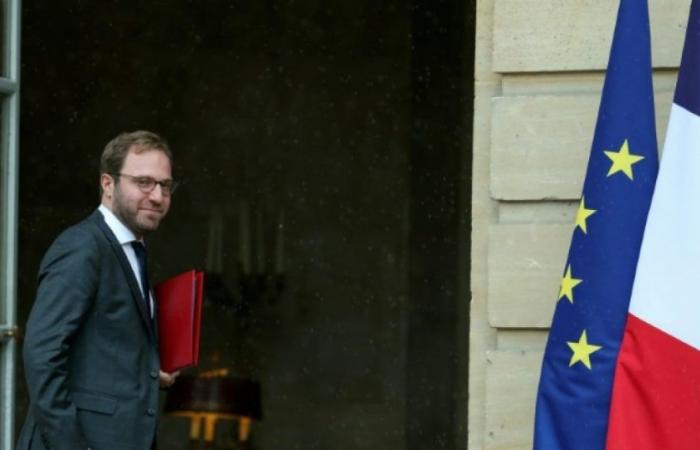
All eyes are on France on Monday in Luxembourg where the new French Minister of Finance, Antoine Armand, must convince his EU counterparts of the budgetary seriousness of Paris after a big slippage in 2024.
The French budget for 2025, which must be presented on Thursday, “will be fully in line with the new European budgetary rules”, affirmed Antoine Armand, a few hours before a meeting of 27 EU ministers.
Postponement of pension indexation, merger of certain public services, reduction in the number of civil servants, or contribution of the wealthiest to the budgetary effort: the measures already mentioned by the government underline the significant efforts to be made to bring down the deficit French public from 6.1% this year to 5% next year, the stated objective.
Convincing European partners promises to be just as difficult, as France has deviated from the 3% threshold defined by EU budgetary rules and is now a bad student.
Antoine Armand must also reassure the financial markets. For seven years, his predecessor Bruno Le Maire continued to preach budgetary seriousness without preventing a drift in French public finances.
“We made the budget to strengthen the financial and national sovereignty of the country,” Antoine Armand said during a press briefing. Respecting European rules, which are “commitments that we ourselves have formulated and inspired, is a question of international credibility and sovereignty,” he assured.
The government intends to bring the public deficit below the 3% limit tolerated by Brussels in 2029 – 2.8% according to documents consulted by AFP -, two years later than promised by the previous government.
Under the threat of censorship from the opposition, in particular from the far right, its survival beyond a few months is not guaranteed. However, time is running out to act.
The debt, at 3,228.4 billion euros at the end of June (112% of GDP), has swelled by a thousand billion since 2017, when Emmanuel Macron became president. It will approach 115% next year, almost double the maximum set at 60% by Brussels, before gradually decreasing.
“Our objective is to bring our deficit below 3% by 2029” after a first “strong and credible” step to “5% in 2025”, reaffirmed the minister on Monday.
The “braking” of public spending is “indispensable, otherwise we are heading straight towards a financial crisis”, warned French Prime Minister Michel Barnier on Friday.
His government obtained from Brussels a deadline until October 31 to present its multi-year trajectory of public finances which was initially expected on September 20.
– A notice from Brussels in November –
The Commission plans to deliver an opinion at the end of November on the plans of the 27 member states.
France is the subject of an EU excessive deficit procedure, along with six other countries (Italy, Belgium, Hungary, Poland, Slovakia and Malta).
Last year, these countries exceeded the public deficit limit set at 3% of gross domestic product (GDP) by the Stability Pact, which also limits debt to 60% of GDP. They must take corrective measures to comply with the rules in the future, or face financial sanctions.
This budgetary consolidation risks slowing down already very weak European economic growth, weighed down by Germany in recession.
Mr. Armand affirmed that he intended to get involved “personally” on the subject of “strengthening the competitiveness” of the European Union. “The EU is falling behind China and the United States in strategic areas,” he warned, referring to the reports of two former Italian Council presidents Mario Draghi and Enrico Letta, published this year.
“We must not accept fate,” declared Antoine Armand, emphasizing that we must work to “deepen the single market and strengthen European industrial policy.”
He pleaded for “the deepening of the single European market” and in particular “the Capital Markets Union”, a “fundamental project in view of the financing wall that stands before us” in particular for the digital and climate transition.





